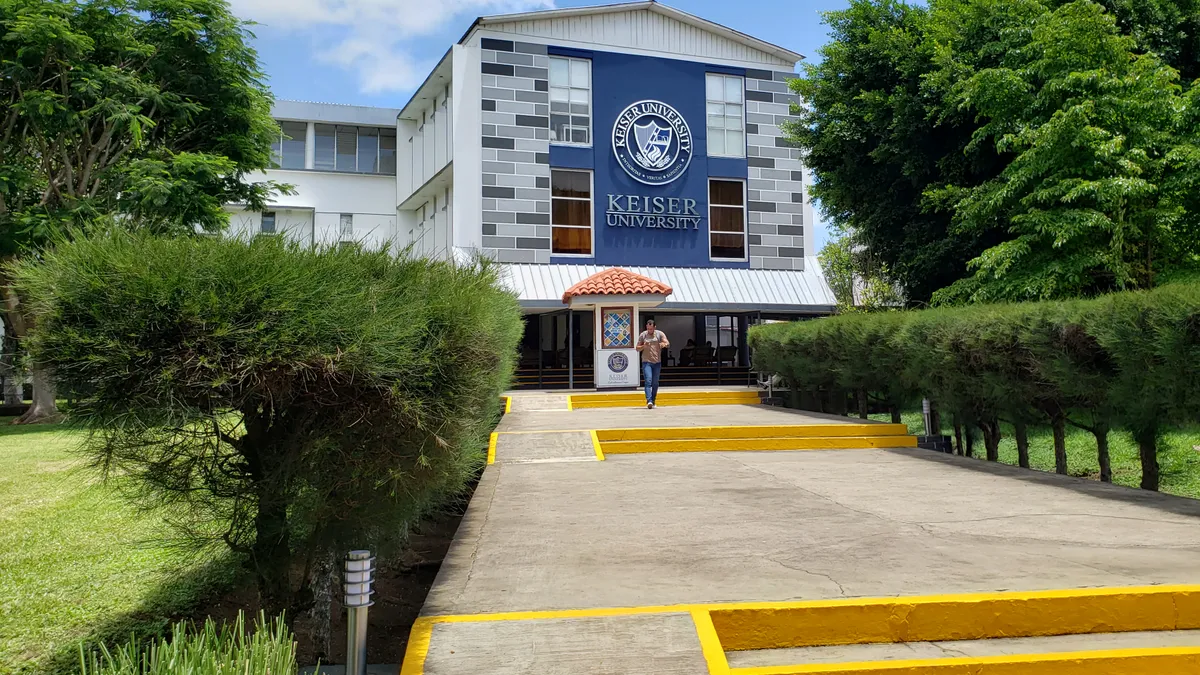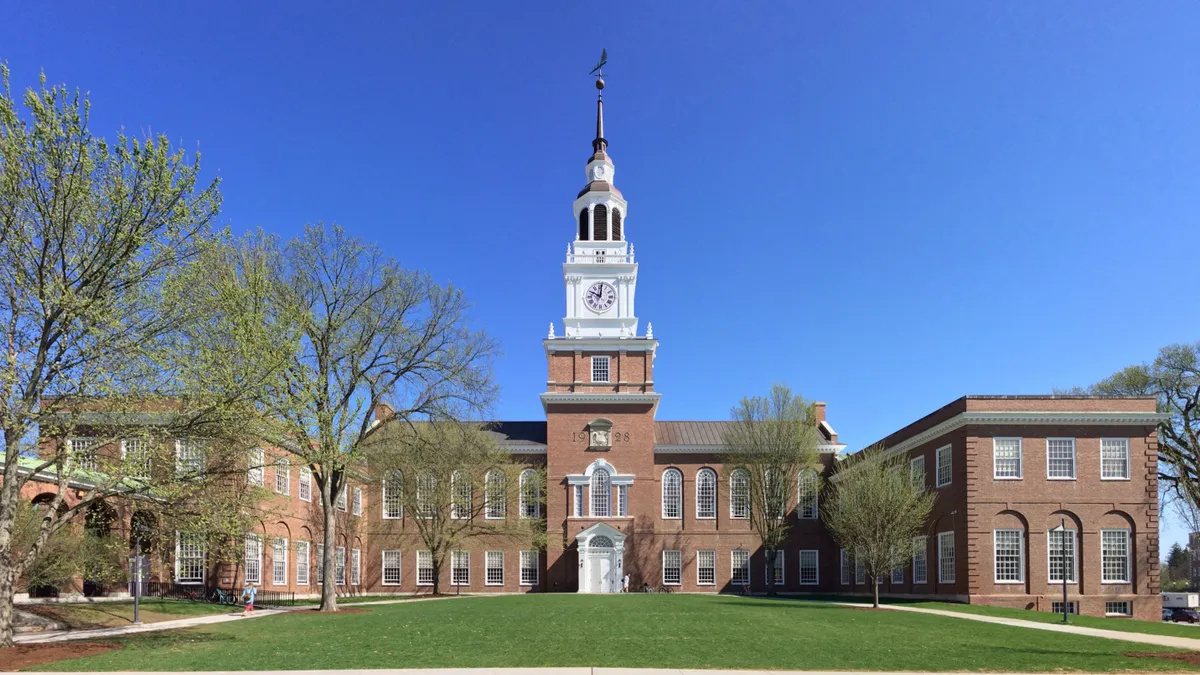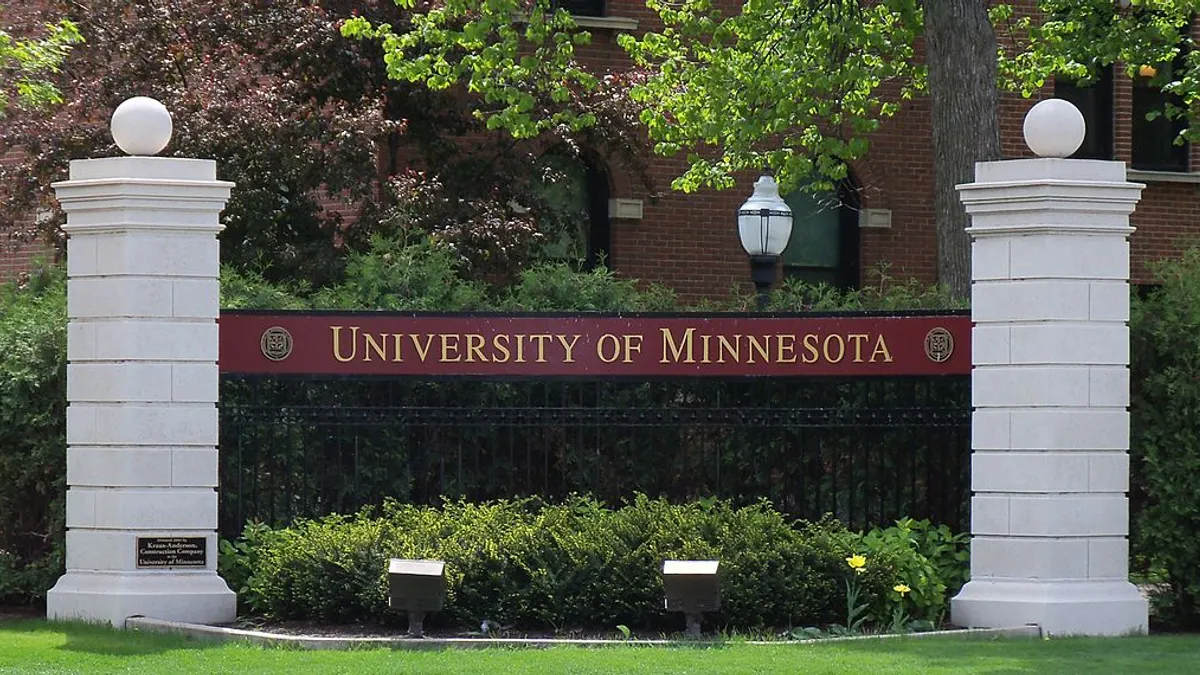Dive Brief:
- The chair of the U.S. House of Representatives' Education and Labor Committee urged the Department of Education to reconsider the nonprofit status of Everglades College, the parent institution of Florida's Keiser University and Everglades University, after an investigation found the university's chancellor and his family earned millions of dollars from the institution.
- Committee Chair Bobby Scott, a Democrat from Virginia, alleges that Arthur Keiser and his family "substantially benefit from the earnings of the institution in violation of the principles of what makes an institution a nonprofit." Scott added that they have received millions of dollars over the past decade from loan payments, rental properties and contracts to provide goods and services to Everglades College.
- Amounts paid to businesses affiliated with the Keiser family in the 2019 fiscal year total $8.9 million, according to tax documents. When adding Arthur Keiser's salary, loans owed to one of the family's businesses and service payments, the family received $16.9 million from Everglades College that year, according to the letter. It alleges a similar pattern exists on Everglades' tax filings since 2011.
Dive Insight:
The letter marks an attempt by a prominent Democrat to crack down on a set of nonprofit colleges subject to fewer regulations than for-profit colleges, but that critics say still operate in a way benefiting a group of insiders. To be considered a nonprofit college by the Education Department, none of an institution's net earnings can benefit any private shareholder or individual.
Lawmakers are taking a closer look at institutions that were formerly for-profits but converted to nonprofit colleges when they were sold by their owners. A recent report from the U.S. Government Accountability Office, for instance, tracked 59 such conversions since 2011. In one-third of those, it found the former owners were insiders, meaning they had a relationship with the nonprofit buyer that could influence its financial decisions.
In some instances, the former for-profit owners also sell services to the nonprofit college after it's sold.
The Education Department has recently strengthened its process for reviewing such transactions, according to the letter. Most recently, it denied Grand Canyon University's request to convert to a nonprofit for the purposes of Title IV, which governs federal financial aid, even after the IRS granted its request to become a nonprofit. The university has since sued the Ed Department over the decision.
Scott is asking the Education Department to consider whether the agency should continue classifying Everglades College as a nonprofit institution for Title IV purposes.
For-profit colleges must follow stricter regulations than nonprofit institutions. That includes the 90/10 rule, which requires them to obtain at least 10% of their revenue from sources other than federal financial aid. For-profit schools also received a lower share of federal coronavirus relief funds and had more restrictions on how they could use the money.
In 2000, the Keiser family converted a college they had bought earlier into Everglades College, which received nonprofit status from the IRS in 2002. In 2011, Everglades purchased the for-profit Keiser University, which the Keiser family had also owned. As part of the sale, Keiser University switched to nonprofit status, allowing it to avoid strict regulations governing for-profit institutions.
Keiser University, which enrolls some 20,000 students, is a career-focused chain with more than a dozen locations spread across Florida. It offers online and in-person undergraduate and graduate degrees in fields such as education, information technology and healthcare.
The letter isn't the first time the university's dealings have raised eyebrows. The New York Times reported in 2015 that Arthur Keiser earned a salary of over $800,000 in fiscal 2012 as Everglades' president and was receiving payments and interest on more than $321 million he lent the organization so it could purchase Keiser University.
Scott flagged similar concerns in the letter. According to 2019 tax filings, Arthur Keiser earned compensation worth $828,400 — a figure that exceeded the compensation received that year by most leaders of Florida's major universities.
Tax documents also reveal Arthur Keiser and his family members own or have an ownership interest in several of Everglades College's service providers, according to the letter. That includes the campus properties, which earn Arthur Keiser and his family members millions of dollars in rental income each year. They also partly own companies providing legal, recruiting, roofing, paper filing, travel and chartered aircraft services to the institution.
In a statement, Keiser University said the committee's letter "attempts to re-litigate" the Education Department's approval of the transition that took place more than 10 years ago.
"Keiser University believes that re-opening transactions approved by the federal government over a decade ago does nothing to advance the interests of students today," it said.
Keiser University also said the letter contained inaccuracies but did not specify them. The university said it looks forward to addressing questions and concerns about the transition with committee members and Education Department officials.
Education Department spokesperson Kelly Leon said in an emailed statement that the agency received the letter and looks forward to responding directly. "All colleges and universities should aim to deliver good outcomes for students by providing a high-quality education," Leon said. "For that reason, the Department is enhancing its review of nonprofit conversions and is working to strengthen those improvements through an ongoing rulemaking process."
This story has been updated to include comment from the Education Department.








